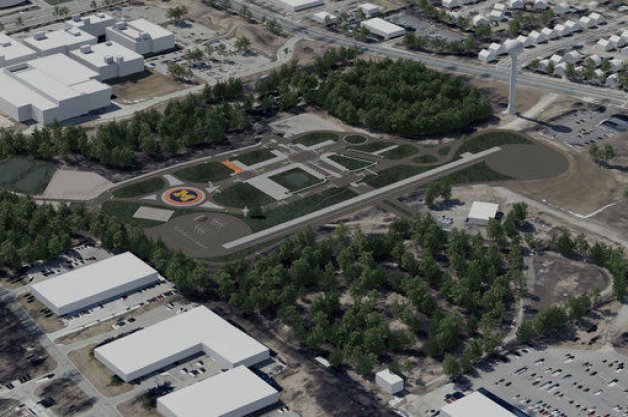University of Michigan Gives Go Ahead for $6.5M Autonomous Car Test Track

Not many cities want to allow several tons of metal piloted by computers to roam their streets, but the University of Michigan has found a solution. Its Board of Regents recently gave construction approval to a $6.5-million test track. The track will allow autonomous vehicles to be tested in real world conditions and includes merging lanes, roundabouts, gravel roads, traffic lights and a stretch of four-lane highway.
"It is very likely the first of its kind. It will allow vehicles to go through a little city," said former U-M Vice President for Research Stephen Forrest to MLive in October, when the project received initial approval.
The test center (rendering above) will be called the Mobility Transformation Facility and is set to include roughly thee lane-miles of roads over 30 acres. There will also be a covered pavilion and a complete framework for lighting, electricity and networking. The track is scheduled to be completed in fall of 2014 and is being built near the university's Transportation Research Institute.
The university hopes to attract government and private research funding to advance the state of autonomous driving tech and vehicle-to-infrastructure communication.
Nouvelles connexes


